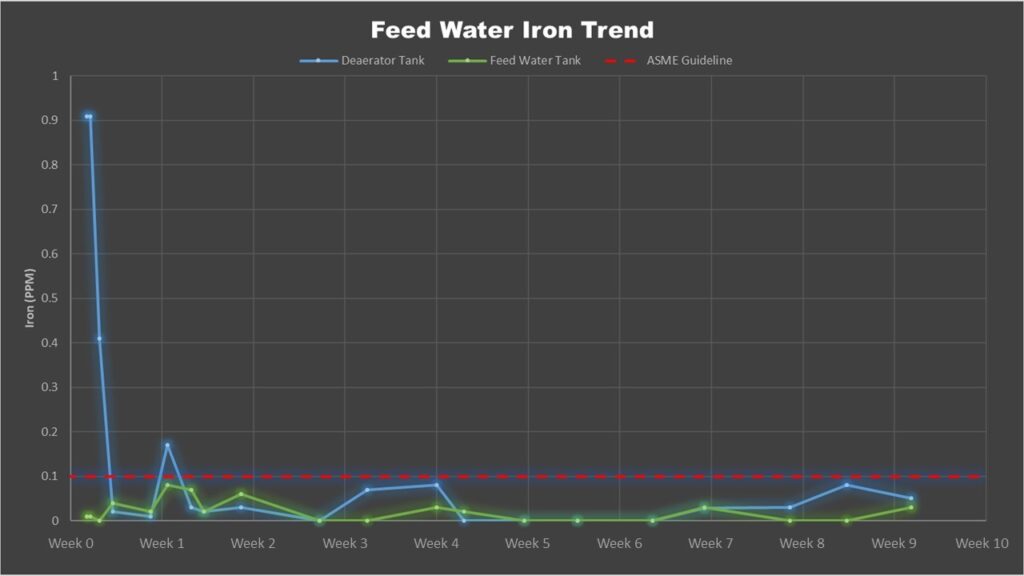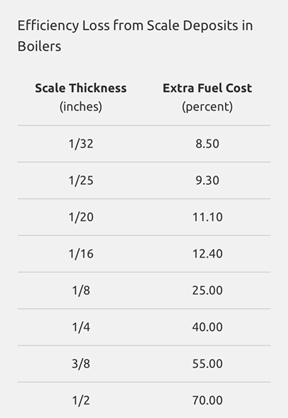The lumber industry is challenged with meeting high demand while simultaneously controlling costs – especially when labor and parts/equipment are in short supply. This makes it extremely important that the production process is optimized to be fast and efficient with minimal downtime while creating quality lumber with little waste.
One of the most important aspects of kiln dried lumber production is controlling the moisture content in the wood. Drying the wood effectively until it reaches the proper moisture level is critical for producing quality lumber. Improper moisture content can affect the appearance, dimensions, and strength of the wood, and potentially yield lumber that cannot be used.
Kilns are often used to dry wood during the lumber production process. Since wood takes on the moisture content of its surroundings, it is imperative to precisely regulate the environment during kiln drying. Kilns use air flow, steam injections, and temperature to control the humidification of the wood and reach desired moisture levels.
Steam boilers are used to supply steam during this lumber kiln-drying process. High-quality, pure steam is essential for properly controlling the humidity in the kiln.
Issues from Steam Boiler Carryover
A common issue that can occur with steam boilers during lumber production is carryover. Carryover is a phenomenon where liquid water and impurities get carried out with the steam from the cycled-up boiler water due to poor steam-water separation. This means that the steam is no longer pure and can become very problematic for kiln drying operations.
If boiler water is carried into the steam line and injected into the kiln, it can cause damage to both the lumber and the kiln structure itself. Because carryover produces low-energy, low quality steam, the results are inconsistent drying and conditioning times which can cause variations in lumber quality, negatively affecting its value. Carryover also accelerates corrosion in kiln coils, steam lines, and equipment downstream of the boilers.
Additionally, carryover can cause a sharp drop in boiler efficiency, lead to water hammering and erratic boiler behavior, and make it difficult to manage any chemical program. In summary, carryover can seriously affect the operation and health of your entire steam system and greatly increase costs by increasing boiler fuel use. These semi-hidden costs must be eliminated in today’s business environment.
What Causes Carryover?
Carryover can occur in your steam system for a number of reasons. Fluctuating steam demand (often seen in kiln-drying yards), low operating pressure, poor water chemistry and control, and improper plant design can all promote boiler carryover.
Many kiln drying lumber producers may not be aware that issues with their equipment, delays in production, or damaged lumber are the direct result of boiler carryover. Once identified as a problem, the challenge becomes how to effectively correct it.
One common approach to curb carryover in systems that struggle to maintain good steam-water separation is to increase boiler blowdown. However, increasing the blowdown rate is a costly method and a waste of energy, water, and treatment chemicals.
Boiler water chemistry is another way companies attempt to thwart carryover. However, many of the conventional chemical treatment programs that are often used are problematic because they add more and more dissolved solids to the water. These solids, along with other impurities, contribute to the carryover-potential of the boiler water, which can only be removed via boiler blowdowns. Again, increasing blowdown results in greater utility and chemicals consumption and higher costs.
Corrosion from Standard Operation of Kilns
Even without boiler carryover, other aspects of standard kiln operation can lead to corrosion of the metal inside the kiln. Lumber yards rotate their kilns to keep an efficient production schedule. Kilns are often cycling between drying, conditioning, and remaining idle. The continual wet/dry operation of equipment causes metal surfaces to become susceptible to oxygen, carbonic acid attack and flash corrosion. Any leaks in coils and steam/condensate piping will draw in air (oxygen and CO2) whenever a vacuum is pulled and accelerate the corrosion process.
“Oxygen and carbon dioxide can also be drawn directly into the coil through leaks of various kinds. This commonly occurs after the steam supply valve closes and the residual steam condenses, drawing a slight vacuum”.1
Due to the nature of kiln operation, flash and oxygen corrosion is of particular concern for equipment and, when left unchecked, results in costly failures and untimely maintenance.
Clarity Has the Solution:
A water treatment program from Clarity Water Technologies featuring our proprietary technology, EcoSHIELD™, has proven to be extremely effective in preventing boiler carryover during lumber production. This state-of-the-art technology is more effective, economical and eco-friendly than traditional chemical solutions.
EcoSHIELD™ was designed to replace conventional water treatment methods and eliminate the use of chemicals that add dissolved solids to the boiler water. This greatly lowers the carryover potential of the water and significantly reduces blowdown, thus conserving energy, water, chemical, and sewage costs.
Additionally, EcoSHIELD™ is the perfect solution to combat the types of corrosion and scale deposition typically observed in kiln drying yards. It forms a molecular protective bond with the metal surfaces of the boiler and inside the kilns, extending the life of these assets while reducing the chances of unscheduled shutdowns due to corrosion-related issues. The film created by EcoSHIELD™ on metal surfaces lasts at least 2 weeks, which has been proven to greatly reduce/stop flash corrosion inside the steam supply and return piping (and heat exchangers) between run cycles.
Controlling Iron Levels Limits Corrosion:
The graph below displays dissolved iron trends for a current Clarity customer in the kiln drying lumber industry. Active corrosion rates correlate to the level of dissolved iron in the water. Before beginning the EcoSHIELD™ program, this customer was experiencing high rates of corrosion and dissolved iron in their feedwater supply to the boilers, as iron concentration was nearly 1 ppm in the boiler feed water prior to starting. Since moving to Clarity’s EcoSHIELD™, iron levels have dropped and remained consistently below ASME’s water chemistry guidelines for boiler feed water (<0.1 PPM for low pressure boiler systems).


There are additional benefits of achieving low feed water iron levels. There is less iron cycled up in the boiler, which greatly reduces the potential for boiler scale that contains this iron. Just 1/16th inch thick of scale in a steam boiler results in 12.4% increase in fuel use. Also, dirty boiler water polluted with insoluble iron further increases risk of boiler carryover. Boiler water, at full cycles, should be crystal clear.
How Clarity Can Help:
Clarity’s technical consultants have extensive expertise in a variety of water treatment applications, including kiln dried lumber production. A custom water treatment plan from Clarity that incorporates EcoSHIELD™ will help lumber mills prevent steam boiler carryover. Our proprietary technology will have your boilers running at peak performance while protecting your equipment from corrosion and reducing the need for blowdown. Clarity’s EcoSHIELD™ will limit production issues related to carryover, conserve energy and water, and lower your total cost of operation!
If you are experiencing symptoms of carryover or have issues with corrosion, give us a call. We’ll do a FREE evaluation of your entire system to assess your process and help customize a water treatment plan for your facility!
1 Carroll, Steven W, Western Dry Kiln Association, and Nev.) Western Dry Kiln Association. Meeting (48th : 1997 : Reno. Steam-side Coil Corrosion In Dry Kilns. : Corvallis, Or. : Western Dry Kiln Association, 1997.
Download Our FREE eBook Today:
Ten Huge Mistakes Facilities Make in Boiler Operation and How to Avoid Them
Have a question about water treatment and steam boilers?
Check out our steam boiler resource page to find links to helpful articles and case studies that address commonly asked questions.


